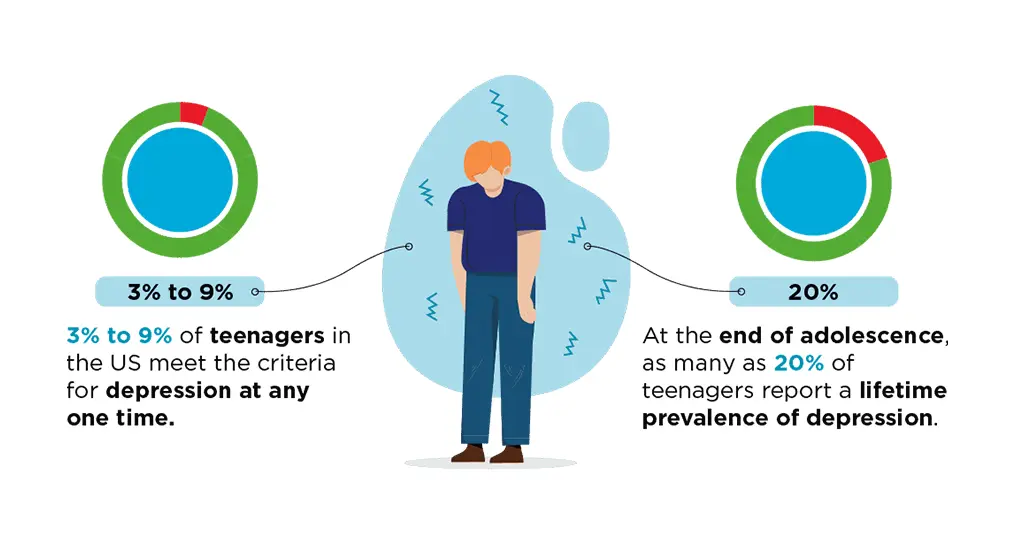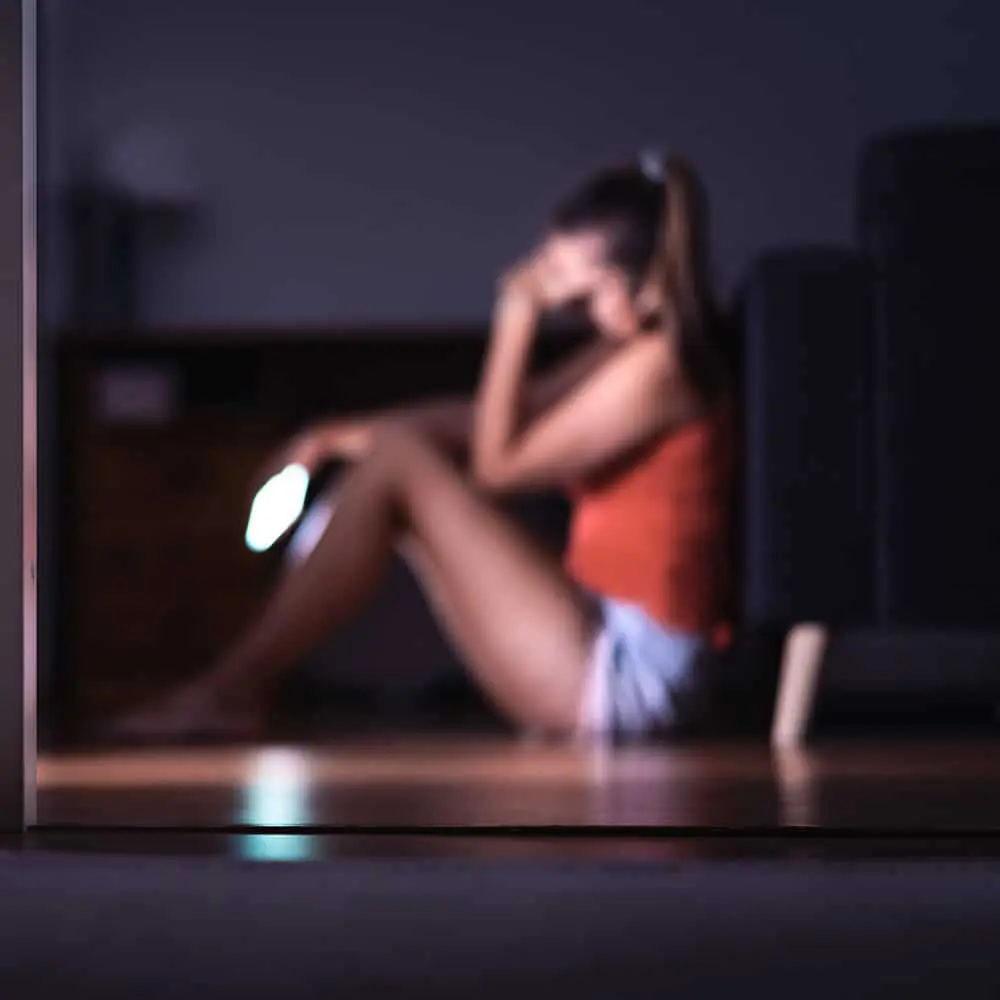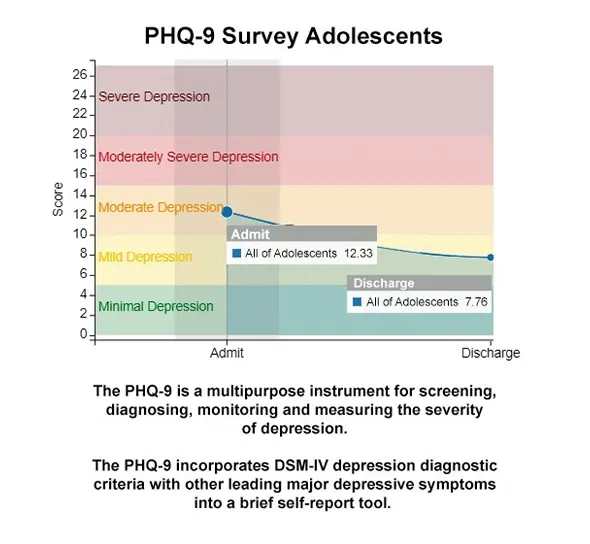Guiding Adolescents through Teen Depression
If your teen has been struggling with depression, SunCloud Health can help. We offer both Partial Hospitalization Programs (PHP) and Intensive Outpatient Programs (IOP), specializing in the treatment of depression and co-occurring disorders, including substance use disorder, eating disorders, anxiety, PTSD, school refusal, and other behavioral health conditions.
Our PHP runs Monday through Friday from 9am-3:30pm, while our IOP is available three to five times weekly from 4-7pm. Both programs are available at our Naperville, Chicago, and Northbrook centers. Designed for adolescents requiring varying levels of support, we provide dedicated time for schoolwork and maintain direct collaboration with their schools. Please contact us for an assessment to discuss depression treatment options and determine if our offerings for treating depression and depressive disorders are the right fit for the needs of your child, patient, or student.
Teenage Depression Treatment: What You Need to Know
As most parents can attest, moodiness, irritation, confusion, and behavioral changes are all normal in teen development: Adolescents are growing and developing, and this often comes with difficulty, feelings of awkwardness, sadness, and distress for young adults. However, it is not wise to rule out teenage depression: consistent and severe changes in your teen’s mood and functioning might be symptoms of a larger, underlying issue that requires treatment.
Parents should be encouraged to seek treatment for teen depression in severe cases. Here, we will discuss, in depth, depression in teens and treatment options to help you better understand:
- Signs and symptoms that your teen may be depressed
- Common underlying causes of Teen Depression
- What steps to take if you believe your teen is experiencing depression
- Tips for having a conversation with your teen about depression
- If your child needs help from a treatment center for depressed teens/treatment centers and program types
- What makes SunCloud Health a top center for teen depression treatment

When seeking help for teenage depression, and considering teenage depression treatment, a combination of talk therapy and medication can be effective. In cases of severe self-harm symptoms, teens with depression may require inpatient hospitalization or help from an outpatient program. Treatment centers can provide resources, knowledge, coping skills, psychological treatments, and lasting relief.
Depression Symptoms & Signs in Teenagers
While it’s hard to differentiate between normal teenage growing pains and symptoms of depression, there are behavioral patterns and even physical health conditions to watch for. Here are some of those common symptoms of adolescent depression:
- Problems with self-esteem
- Lack of motivation or the ability to concentrate, especially in teens that were once focused
- Exhaustion, fatigue, and body aches
- Loss of interest in activities that were once of interest
- Changes in appetite, weight, and sleep habits
- Substance abuse, which may result in individual, school, health, and/or family conflict
- Consistent negative feelings or bad mood, manifesting as either frequent crying and expressions of despair and hopelessness or as bouts of frustration and anger (both can indicate mild to severe depression)
- Suicidal thoughts or suicidal ideation
While any one of these adolescent depression symptoms may be demonstrated by teens who are not experiencing depression, consistency and severity of symptoms are key in identifying depression in teens.
What Is Major Depressive Disorder (MDD) in Adolescents?
Major Depressive Disorder is a type of mood disorder characterized by a persistently low mood or sadness, decreased interested in activities previously enjoyed, and depressive episodes. 17% of adolescents ages 12 to 17 have had one or more major depression episodes, with 12% of those experiencing MDD resulting in severe impairment. Less than half of those with Major Depressive Disorder receive treatment.
Unlike adults, adolescents have few options for coping strategies, as their abilities are often limited. Whereas adults can take a vacation, schedule time off, or even change jobs, teens may not have the choice to change schools or may lack transportation to health-promoting activities. This overall lack of control can, in turn, affect their ability to receive proper treatment and start on the path to recovery.
What Are the Symptoms of Major Depressive Disorder (MDD) ?
- Irritable mood
- Withdrawal from school/activities
- Decreased school performance
- Not getting out of bed
- Refusing to go to school
- Increased isolation/time spent alone in room
- Suicidal ideation
- Self-injurious behavior
- Substance use
- Engaging in disordered eating
Video: Alexander Chevalier, MD, Medical Director, Child and Adolescent Psychiatry at SunCloud Health discusses MDD in adolescents
Common Underlying Causes of Teenage Depression
There are a number of experiences that may cause, trigger, or exacerbate a persistent depressive disorder, of which teenagers are particularly vulnerable to exposure. Bullying, academic pressure, family dysfunction, and past trauma are all common underlying causes of depression in teens. Teen depression can often also go hand in hand with teen anxiety and PTSD. In seeking treatment for teens experiencing depression, remember to ask questions and articulate relevant details when working with mental health professionals to help them better understand your teen’s specific circumstances.

Steps to Take If You Believe Your Teen Is Depressed
Parents of depressed adolescents are encouraged to seek treatment alongside their teen. Be sure your child receives a diagnosis from a doctor or mental health professional. Along with a psychological evaluation, physical examinations and lab tests are common in diagnosing teen depression. There are currently two antidepressant drugs to treat clinical depression in teens approved by the FDA: fluoxetine (Prozac) and escitalopram (Lexapro). Discuss these options with your teen’s doctor and do not refrain from asking questions on depressive symptoms to watch out for, appropriate antidepressant medications, and other mental health treatment options.
Tips for Having a Conversation about Teenage Depression Treatment
Teens are not adults – as their minds continue to develop, they may not reach out for help or open up about their experiences on their own. It is important to discuss concerns about the underlying mental health issues with your teen openly and without judgement. Here are a couple tips for having conversations with your teen about depression and mental illness:
- Focus on your teen’s strengths and avoid placing blame
- Speak with your teen in a tone that grants dignity and respect
- Talk face-to-face in a safe environment
- Remember to listen rather than lecture
- Make a deliberate effort to understand and empathize with your teen’s perspective and experience
- Offer your teen treatment options & make your teen feel included in discussions about treatment

Seeking Help from a Treatment Center for Depressed Teens
Often, seeking proper teenage depression treatment centers is an emotionally challenging process. Many young people have never been away from home for long periods of time, and forcing inpatient hospitalization can create additional trauma and counteract the impact of treatment. In some cases, particularly when teens are in danger of self-harm or harming others, inpatient hospitalization can provide safety until symptoms become more manageable. Many outpatient programs can offer comparable treatment to their inpatient counterparts, without adding an overnight-away-from-home factor to the child’s experience. It is essential to understand the risks involved with intensive treatment and compare them honestly to the risks inherent in self-harm symptoms.
When deciding on a center, it’s important to ensure the mental health professional specializes in identifying depressive symptoms and treating major depression, rather than having it be a small portion of what they do. Some important questions to consider include:
- How small or large are the mental health therapy groups?
- What is the staff-to-patient ratio?
How often do you treat teenage depression and mood disorders? - What percentage of patients are also being treated for mild, moderate, or severe depression?
- Can my teen still attend school and, if so, how will they be supported?
- How often will my adolescent see a doctor, therapist, dietitian, and or other mental health professional throughout their care and as part of their tailored plan to treat depression?
- Do you offer family therapy sessions in addition to group and individual therapy?
We also recommend scheduling a tour of the center to get a feel for it, speak with the staff about their expertise in a wide range of mental disorders, and make sure the provider’s day-to-day programming meets your child’s needs.
SunCloud Health: a Top Center for Teenage Depression Treatment
As a top teenage depression treatment center, SunCloud Health recognizes the toll depression can take on your teen and your family’s lives. We believe there is always hope, and we are here to help your teen take the first steps toward recovery.
SunCloud Health currently offers Intensive Outpatient Treatment (IOP) and Partial Hospitalization Programs (PHP) for teenage depression. We bring a unique niche in the treatment community that other programs can’t or aren’t able to offer, treating not just depression but any other mental health issues, including eating disorders and substance abuse. We don’t turn a blind eye to co-occurring disorders, as we know that things biologically and neurologically work together and, therefore, depression cannot be treated fully if the brain is mal or undernourished.
We are dedicated to the needs of teens and the emotional health issues they face, and we create an individualized program for each teen, tailored to their needs. Hear from our staff on why SunCloud Health is the right choice to receive an accurate diagnosis, treat depression, and help provide the tools needed to guide adolescents through a major depressive episode.
From admit to discharge, we see an aggregate improvement in our adolescents as measured by the PHQ-9. Lower scores reflect an improvement.

